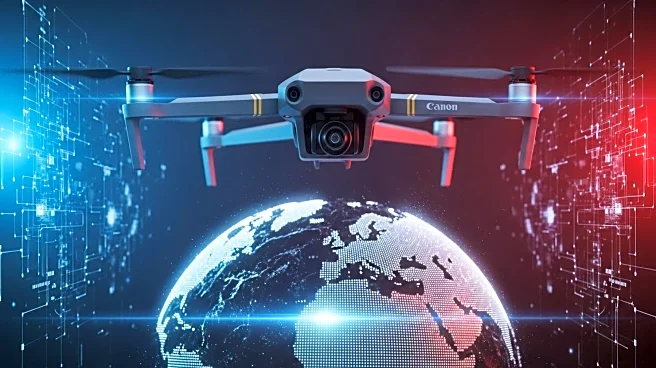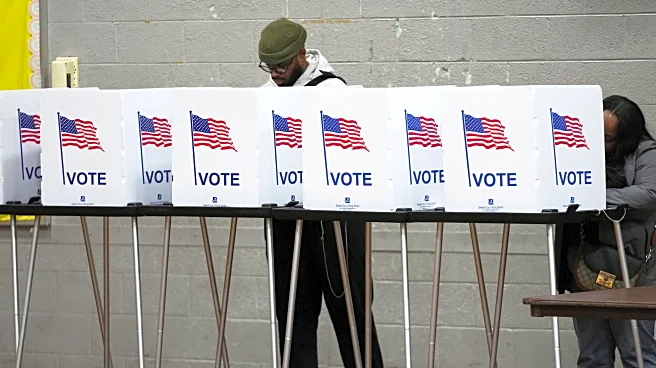What is the story about?
What's Happening?
Chinese authorities have announced rewards for information leading to the arrest of 18 individuals identified as Taiwanese military psychological operations officers. These officers are accused of spreading separatist messages, according to the public security bureau in Xiamen, a city located across the Taiwan Strait from Taiwan. The bureau has released the names, pictures, and identity card numbers of these individuals, claiming they are involved in disinformation, intelligence gathering, and psychological warfare. The announcement follows Taiwan's recent pledge to enhance its defenses against increasing military and political pressure from China, which views Taiwan as part of its territory despite objections from Taipei.
Why It's Important?
This development underscores the escalating tensions between China and Taiwan, with potential implications for regional stability and international relations. China's actions reflect its ongoing strategy to exert pressure on Taiwan, which could lead to heightened military and diplomatic confrontations. The situation may affect U.S. foreign policy, as the U.S. has historically supported Taiwan's autonomy. Additionally, the targeting of psychological operations officers highlights the role of information warfare in modern conflicts, which could influence global cybersecurity and intelligence strategies.
What's Next?
The situation may lead to increased military readiness and diplomatic efforts by Taiwan to counteract China's pressure. International stakeholders, including the U.S., may respond with statements or actions supporting Taiwan's sovereignty. The focus on psychological operations suggests that both sides may intensify their information campaigns, potentially involving cyber operations and media strategies. Observers will be watching for any escalation in military activities or diplomatic exchanges that could further impact regional security.
Beyond the Headlines
The targeting of psychological operations officers raises ethical questions about the use of information warfare and its impact on civilian populations. It also highlights the challenges of maintaining national security in the face of sophisticated propaganda and disinformation campaigns. The situation may prompt discussions on international norms and regulations regarding psychological and cyber warfare, as well as the protection of individual rights in the digital age.
















